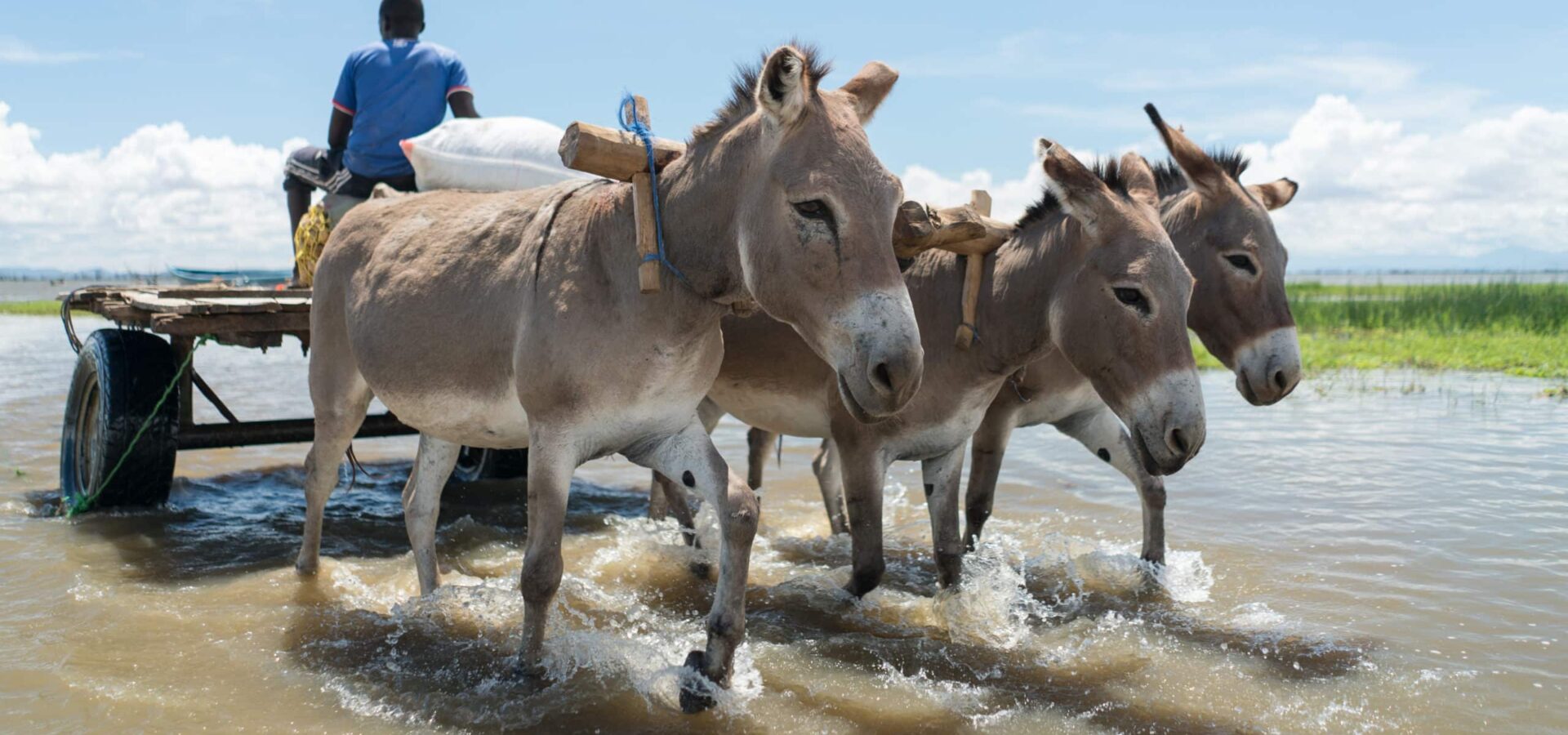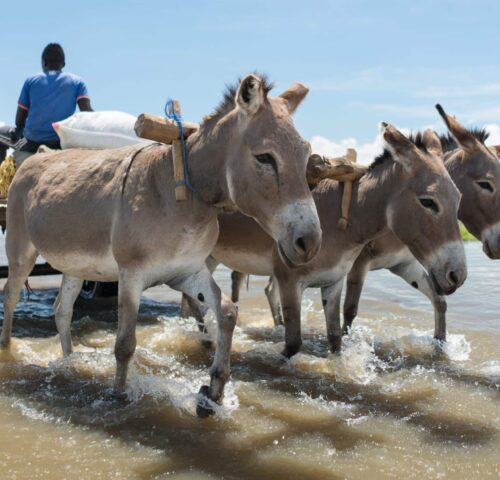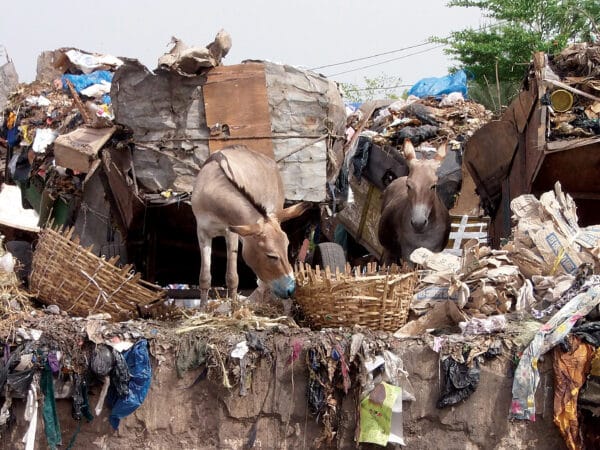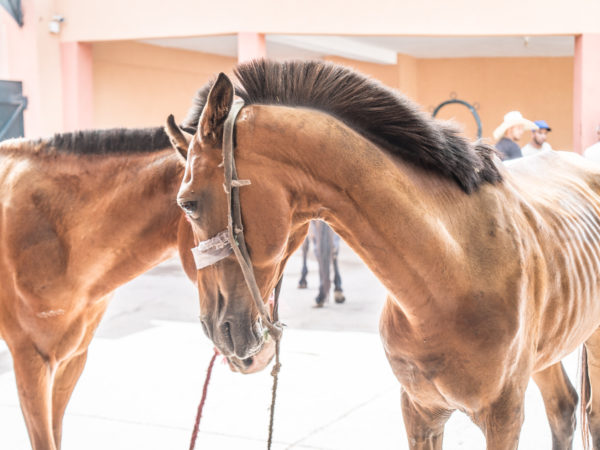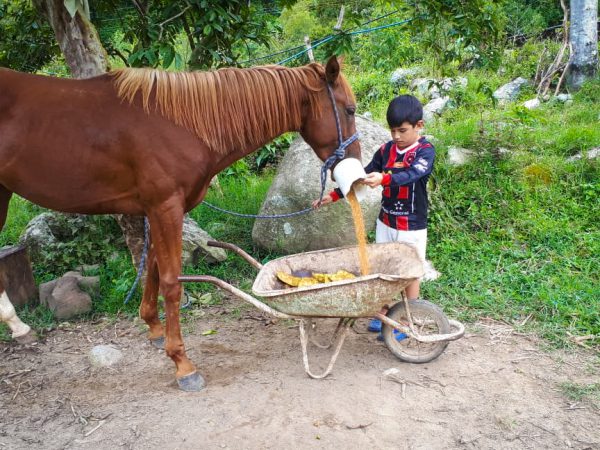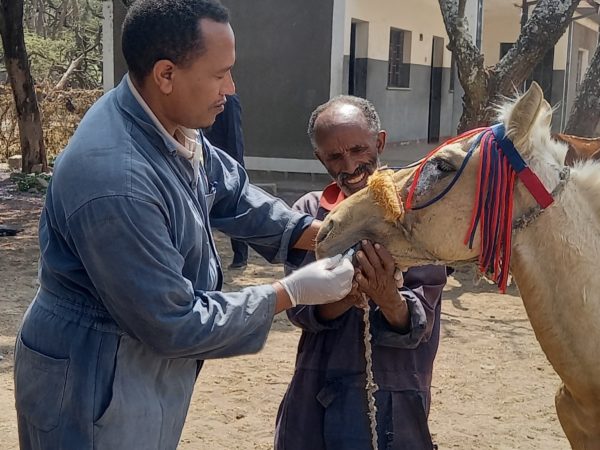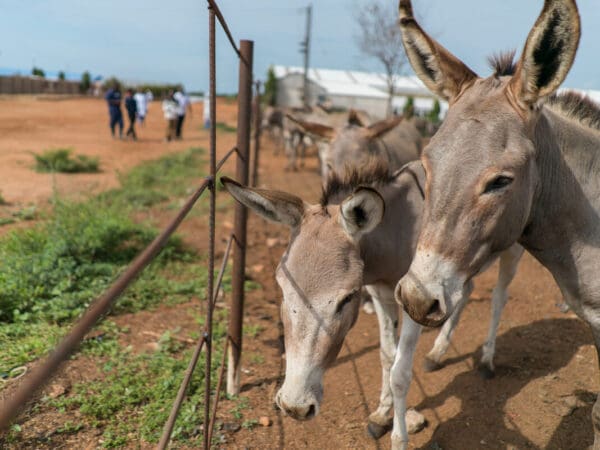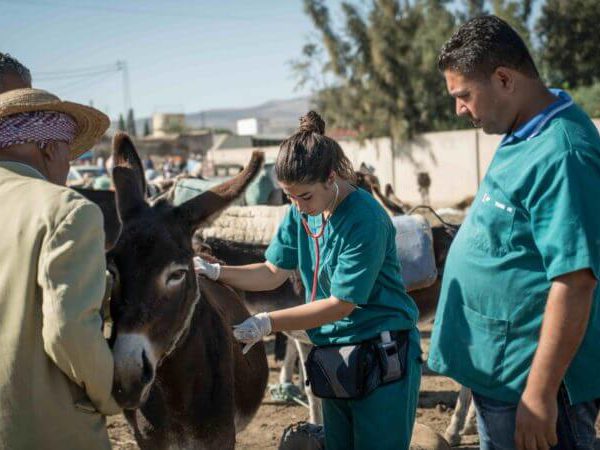Working animals have a vital role in Tanzania. Donkeys are used by many families in rural communities to transport goods, act as taxis and help with agricultural work. In such a vast country, it can be difficult to access veterinary care. Many working animals wouldn’t receive treatment without SPANA’s free mobile veterinary clinics.
Tanzania at a glance
- Population: 63.6 million
- Area: 945,087 square km
- Location: East Africa
- Capital city: Dodoma
- Estimated number of working donkeys: 190,719
- Number of mobile veterinary clinics: Three
- Number of working animals treated in 2022: 5,025
- Number of animal owners trained in 2022: 468
- Number of veterinary professionals trained in 2022: 141
- Number of children receiving humane education in 2022: 2,696
Our work in Tanzania
In Tanzania, we run three mobile clinics so that our vets can treat working animals in remote, rural villages. Common conditions seen by our vets include wounds, parasites, colic, lameness, tetanus and rabies.
Through community training for animal owners, we aim to improve knowledge of equine care, as well as supporting the development of more humane attitudes towards working animals.
Our education programme teaches children about the needs and welfare of animals. The programme trains teachers and reaches children in schools across the country.
In Tanzania, we are also working to stop the global trade in donkey skins for use in traditional medicine. We educate Maasai tribespeople in how to protect and secure their animals – working with them to build corrals to keep donkeys safe. We also supported the closure of a donkey abattoir, in Shinyanga, in August 2021.
Protecting animals in Tanzania
Our coronavirus (Covid-19) emergency feeding programme helped 900 working animals in desperate need in Tanzania in 2020. Mama Nembris, who is 35 years old and lives in the Maasai village of Terat, Arusha, was one of the animal owners who benefitted from the programme. She said:
‘My life depends on my donkeys. I use them to transport food crops from the field to the market, which is 10km away, and fetch water.
‘Life in the village was very hard when everything shut down because of the Covid-19 pandemic. We relied on our donkeys more than ever. They brought water from the well that we use for drinking and cooking – as well as cleaning our hands as part of the Covid-19 protection measures.
‘I thank our friends from SPANA. Because of their support, the vet team has been able to visit us in the village. They treated our donkeys and gave them food. It has helped greatly at such a difficult time.’

